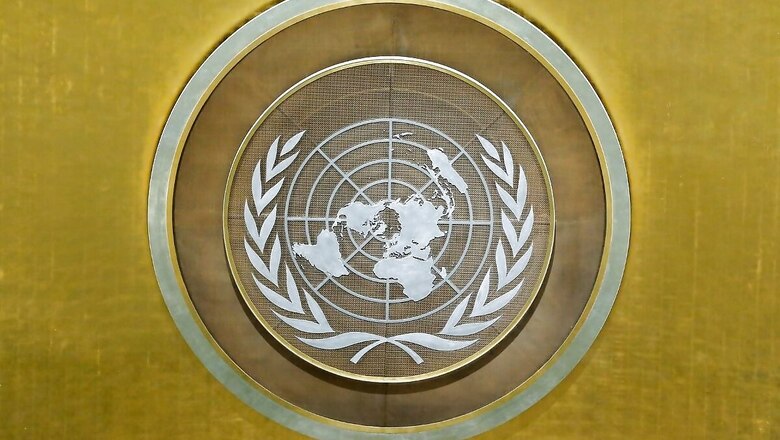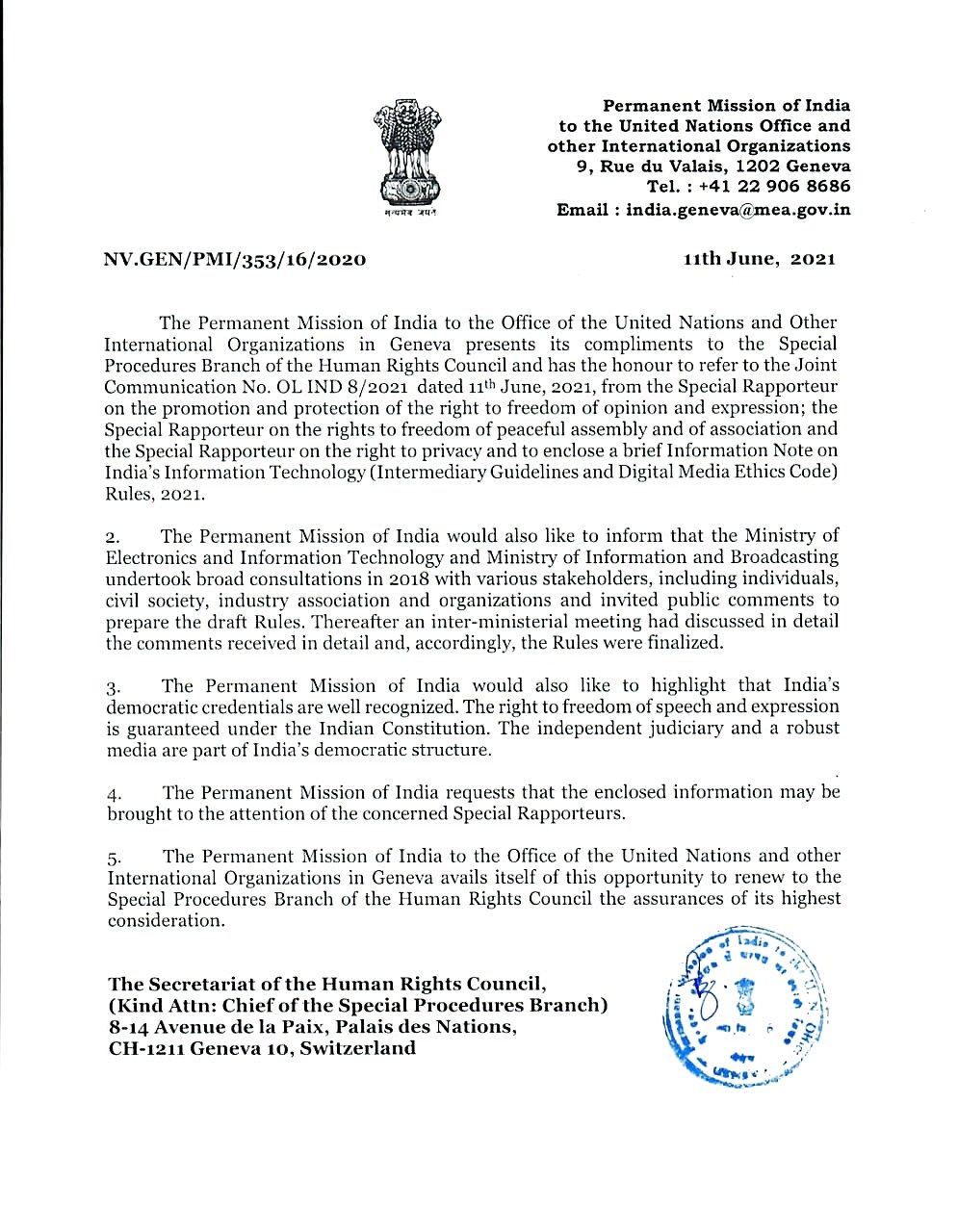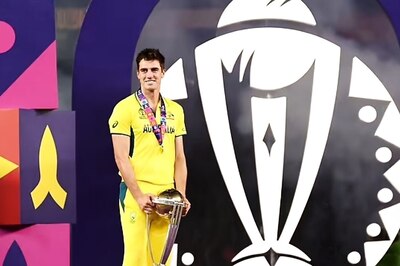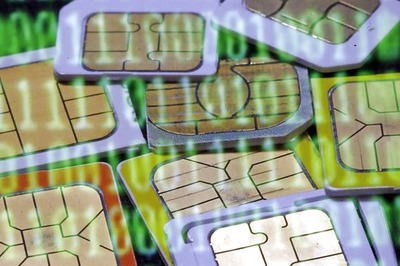
views
After experts at United Nations Office of the Human Rights Commissioner said in a report that they are ‘concerned’ with India’s IT rules, the Permanent Mission of India to the Office of the UN responded, saying the country’s “democratic credentials” were well-recognised.
The UN experts had said previously that India’s Information Technology (Intermediary Guidelines and Digital Media Ethics Code) Rules, 2021, in their current form, did not conform with international human rights norms.
The observations were made in Mandates of the Special Rapporteur on the promotion and protection of the right to freedom of opinion and expression; the Special Rapporteur on the rights to freedom of peaceful assembly and of association and the Special Rapporteur on the right to privacy.
“The Permanent Mission of India would like to highlight that India’s democratic credentials are well recognized. The right to freedom of speech and expression is guaranteed under the Indian Constitution. The independent judiciary and a robust media are part of India’s democratic structure,” the reply said.

It added that the the Ministry of Electronics and Information Technology and Ministry of Information and Broadcasting undertook broad consultations in 2018 with various stakeholders, including individuals, civil society, industry association and organizations and invited public comments to prepare the draft Rules. “Thereafter an inter-ministerial meeting had discussed in detail the comments received in detail and, accordingly, the Rules were finalized,” it said.
The special UN report is authored by Irene Khan, Special Rapporteur on the promotion and protection of the right to freedom of opinion and expression, Clement Nyaletsossi Voule, Special Rapporteur on the rights to freedom of peaceful assembly and of association and Joseph Cannataci, Special Rapporteur on the right to privacy.
“As noted in previous communications sent to your Excellency’s Government, we are concerned that these new rules come at a time of a global pandemic and of large-scale farmer protests in the country, where the enjoyment of the freedom of opinion and expression, including the right to receive information, and the right to privacy, is particularly important for the realisation of several other civil, cultural, economic, political and social rights,” the report had said.
“We would like to recall that restrictions to freedom of expression must never be invoked as a justification for the muzzling of any advocacy of multiparty democracy, democratic tenets and human rights,” it had added.
According to the UN report, as a global leader in technology innovation, India has the potential to develop a legislation that can place it at the forefront of efforts to protect digital rights. However, the substantially broadened scope of the Rules is likely to do just the opposite.
“We would therefore encourage the Government to take all necessary steps to carry out a detailed review of the Rules and to consult with all relevant stakeholders, including civil society dealing with human rights, freedom of expression, privacy rights and digital rights”, the report had said.
“We understand the new Rules were issued under the Information Technology Act of 2000 and therefore, were not subject to parliamentary review or opened for consultation with stakeholders. We believe such consultations with relevant stakeholders are essential in order to ensure the final text is compatible with India’s international legal obligations, in particular with Articles 17 and 19 of the ICCPR,” it had added.
Read all the Latest News, Breaking News and Coronavirus News here.




















Comments
0 comment